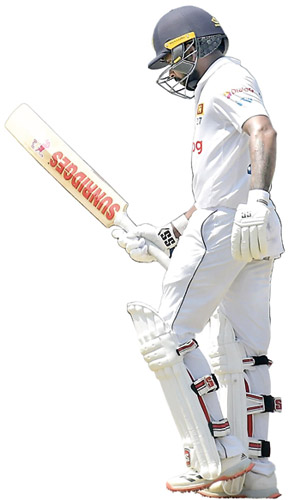Sunset for Dickwella after three-year ban?

Will Niroshan Dickwella make a comeback or dwindle with the ban
In a stunning blow to the integrity of Sri Lankan cricket, wicket-keeper batter Niroshan Dickwella has become the first national cricketer to be slapped with a three-year ban from all forms of the game after failing a doping test. The 31-year-old tested positive for cocaine, a prohibited narcotic, during the Lanka Premier League (LPL) 2024. The test, conducted by the Sri Lanka Anti-Doping Agency (SLADA) on July 14, resulted in swift disciplinary action.
A three-member anti-doping disciplinary panel handed down the ban, effective from August 13, 2024, following their decision on Tuesday. This marks a significant low point for Dickwella, who opted not to request a B-sample test, effectively conceding to the charges.
The disciplinary panel, comprising President’s Counsel Uditha Egalahewa, Prof. Rohini Fernandopulle, and Dr. Nimal Herath Gunaratne, reached their conclusion after thorough deliberation, officially notifying Sri Lanka Cricket (SLC) and other relevant authorities.
This incident echoes previous doping controversies in Sri Lankan cricket. In 2011, current chairman of selectors Upul Tharanga also served a three-month ban after testing positive for a banned substance, while Kusal Janith Perera successfully challenged a doping allegation in 2015.
However, Dickwella’s case adds a new level of seriousness, casting a long shadow over the sport’s reputation. Following the positive test, Dickwella was suspended from all forms of cricket by SLC and his career now hangs in the balance.
Even though out-of-competition use of cocaine is not considered an offence under World Anti-Doping Agency (WADA) rules, the implications for Niroshan Dickwella were severe due to the timing and circumstances surrounding his positive test.
The 2024 Lanka Premier League (LPL), held from July 1 to July 21, witnessed Dickwella captaining the Galle Marvels, who suffered a crushing defeat to the Jaffna Kings by 9 wickets in the final. The sting of that loss was soon overshadowed by news of the positive drug test, throwing Dickwella into an unwanted spotlight.
In August, Dickwella faced a three-member disciplinary committee and agreed to submit a written statement within a week, explaining his side of the story. This document was pivotal in shaping the committee’s final verdict on his fate.
Though this marks his first recorded doping offence, Dickwella is no stranger to controversy. Just three years ago, he, along with Danushka Gunathilaka and Kusal Mendis, were suspended for breaching COVID-19 protocols during Sri Lanka’s tour of England. What was expected to be a one-year ban for the trio was reduced to six months after appeals, and many hoped this incident would serve as a wake-up call for Dickwella. Regrettably, his involvement in scandals continues.
Despite receiving his education at Trinity College, renowned for producing cricketing greats like Kumar Sangakkara, Dickwella has struggled to meet the standards expected of an international cricketer. His record—54 Test matches, 55 ODIs, and 28 T20 Internationals—demonstrates undeniable talent, but his lack of discipline has overshadowed his potential.
The current doping scandal threatens not only to derail Dickwella’s career but also raises alarming questions about the culture within Sri Lankan cricket. Growing concerns suggest that this incident might not be an isolated case, leading to calls for Sri Lanka Cricket (SLC) to conduct a thorough investigation into whether other national cricketers are involved in drug use. Such an inquiry is vital to preserving the integrity of the sport and ensuring the next generation of cricketers isn’t led astray by misguided role models.


